Product owners are an essential part of a scrum team. They provide a clear vision of what a product needs to be and a strategy for how the scrum and development team can achieve their goal. Hiring the right product owner can be challenging, especially if you’re uncertain about what to look for. These product owner interview questions can help guide you.
The product owner interview questions we share are specific to that role, but some of them can cross over to interviews for other roles. You can use them as a guide to shape your own interview questions, or use them as written if you feel they’re relevant. Consider checking out the best agile tools as well — we’ll cover their importance throughout the article.
This article isn’t only for those conducting interviews. If you’re a product owner with an upcoming interview, you can use this as a guide to prepare. We can’t guarantee your potential employer will ask the questions below, but don’t be surprised if some or all of them come up.
Product Owner Interview Questions: Categories
Questions during a product owner interview are usually broken up into three key categories: hard skills, soft skills and behavioral traits. We’ll explain each in more detail below.
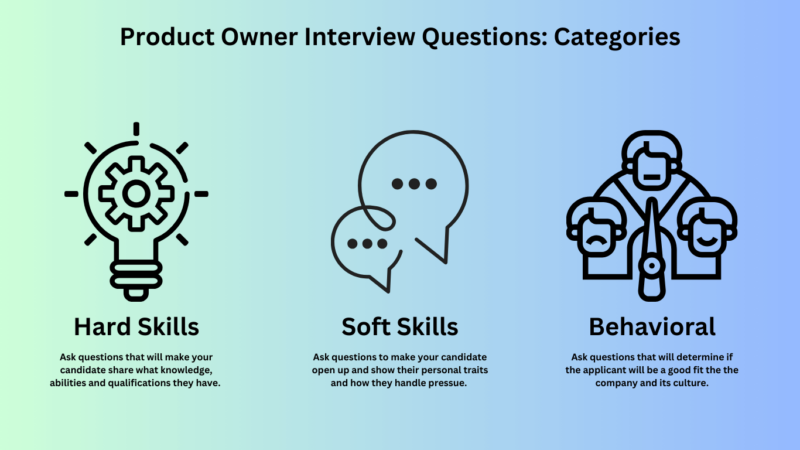
down into three categories: hard skills, soft skills and behavioral skills.
Hard Skills
Hard skills tend to be the non-negotiables when hiring product owners. Does the candidate have experience in product development? Can they build a product backlog? What’s their experience with using the scrum framework? Which scrum certifications do they have? Hard skills should demonstrate that a candidate has the qualifications and knowledge to be a product owner.
Soft Skills
Soft skills are equally important, but they have less to do with qualifications and more to do with how a product owner approaches the work. Are they an active listener? Can they keep calm under pressure? Do they have the confidence to lead by example and effectively communicate the product vision? These are all key traits to look out for.
Behavioral Skills
Behavioral skills are similar to soft skills, but they’re more subjective. When hiring a product owner, it’s a good idea to think about whether they are the right match for the culture at your company. Would you have the confidence to let them represent the company positively when dealing with internal and external stakeholders? This can initially be hard to judge, but we will help by sharing what we consider to be good answers.
Interview Questions: Hard Skills
Let’s look at the types of questions you should ask your product owner candidates, why you should ask them and what good responses typically look like.
1. What is your experience with the scrum framework?
Why Ask This Question?
Of course, the candidate’s experience will be on their resume. However, it’s one thing to write it down and another to communicate it verbally. Not only does this question give you a deeper understanding of the candidate’s experience, but it also helps you judge how confident they are about their skills as a product owner.
What’s a Good Answer?
- The candidate demonstrates a deep understanding of the scrum framework and agile methodologies.
- The candidate shares professional success stories of using the scrum framework.
- The candidate can explain how the scrum framework benefits the end-user.
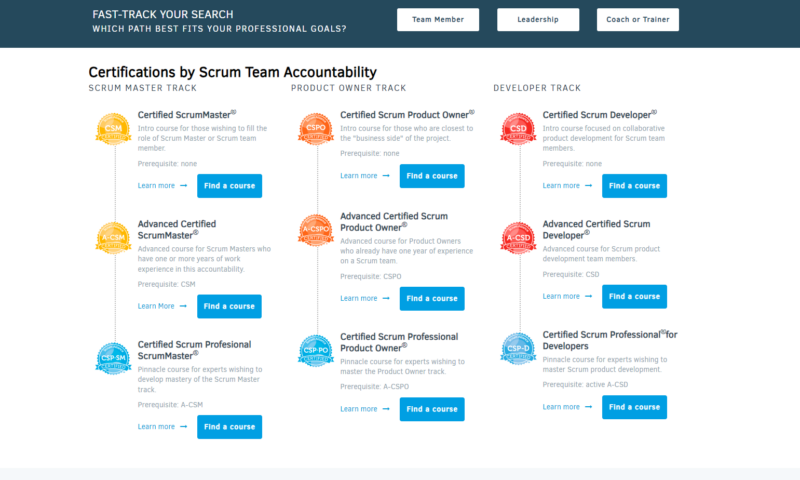
to find out which scrum certifications they hold.
2. How do you approach developing a product roadmap?
Why Ask This Question?
The product roadmap is the foundation of the development team’s work. It takes a product from its roots and, with the best planning, allows it to grow. It’s important for you to determine whether a potential product owner can demonstrate the skills and experience to drive the product’s journey and, more importantly, how they intend to do so.
What’s a Good Answer?
- The candidate shows a deep understanding of what the product needs to be and what the team is trying to achieve.
- They can describe in detail how they would break down the product journey to meet goals.
- Ideally, the candidate discusses the “cone of uncertainty” when planning a product roadmap.
3. What is your understanding of user stories, product backlogs and sprint planning?
Why Ask This Question?
Knowing about the scrum framework is not the same as understanding it. Every product owner should understand scrum terminology. How they answer can help you ascertain how experienced they really are.
What’s a Good Answer?
- A good answer includes clear and confident definitions of each part of the development process, including product backlog refinement.
- The candidate offers examples of how they approach each stage to ensure they reach the final product.
- They can explain why each part is important to successful product ownership.
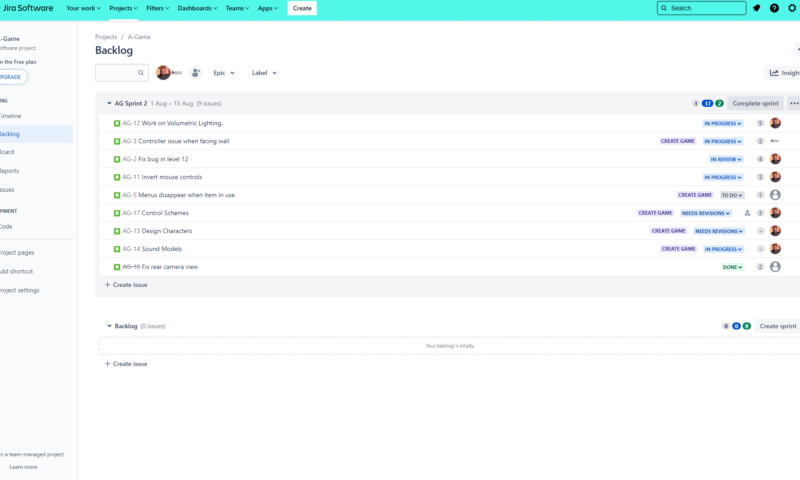
and the candidate should be able to discuss it in detail.
4. What is your understanding of the other roles on your team?
Why Ask This Question?
Product owners will often work with a scrum master and a development team. It’s important for them to understand what scrum masters and development teams do so they can effectively manage the product and identify any roadblocks that may occur. Someone who knows more about other team members’ roles can better manage and support them.
What’s a Good Answer?
- The candidate can demonstrate in detail the type of work other team members do and how they impact the success of a project.
- The candidate can provide an example of how their role as a product owner can positively impact the roles of others.
- Ideally, they can share previous experience working with a scrum master and on a software development team.
5. How do you gather product feedback from the end-user?
Why Ask This Question?
User research is important because it dictates the direction of a product and what it needs to be. A good product owner knows which questions to ask an end-user to gain knowledge about what the product should look like and how it should function.
What’s a Good Answer?
- A good answer demonstrates the candidate’s willingness to understand the problem that the product will help the end-user overcome.
- The candidate has the courage to use their skills to respectfully challenge the end-user and highlight an improved idea of what the product should be.
- They have a strategy for how to log end-user feedback and dissect it so they can create user stories and overcome any issues the end-user may have.
6. What is your experience with using project management software?
Why Ask This Question?
In the digital world, every product owner should be well-versed in using the best project management software, especially in agile product development. Asking this question helps you determine whether you will need to invest time and resources into training someone to use an app like monday.com. The less time you spend training, the faster they can start doing the work.
What’s a Good Answer?
- Ideally, the interviewee has used several different project management tools.
- The candidate has experience using the best specialist scrum software.
- They have trained others to use project management software, making them an expert in such solutions.
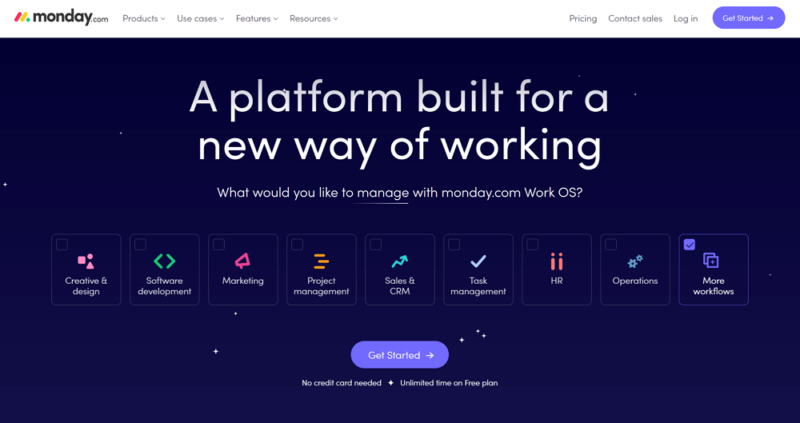
7. What is your understanding of business value?
Why Ask This Question?
When a scrum team builds a product, the bulk of the work should be to maximize the value the product provides to a business (end-user). The product owner determines the work required to optimize the value provided for the end-user. This includes identifying issues and how to overcome them to offer the best product possible.
What’s a Good Answer?
- The candidate shows that they can understand the end-user’s needs and what they want from a product.
- They understand the importance of being flexible throughout the product’s journey and are not afraid to make necessary changes to deliver the best product.
- They maintain strong relationships with external stakeholders to ensure the product doesn’t divert from expectations.
8. What is your experience beyond agile software development?
Why Ask This Question?
Although a product owner and their scrum team traditionally work in software development, it’s no longer the only space where agile methodology is used. If your candidate has experience in other areas, such as marketing or manufacturing, they’ll likely bring a more diverse skill set and greater level of expertise to the role you’re hiring for.
What’s a Good Answer?
- The applicant demonstrates their experience with physical product development.
- They have experience applying agile principles to a range of different product types.
- They can explain the benefits of using agile project methodologies across different industries.
Interview Questions: Soft Skills
Now we will look at some soft skill product owner interview questions.
1. Why are communication skills important for a product owner?
Why Ask This Question?
Anyone can say they are a good communicator. A more nuanced question is to ask why excellent communication skills are important in the role of a product owner. This encourages the candidate to demonstrate a strong understanding of how to communicate with others and the importance of doing so effectively.
What’s a Good Answer?
- The candidate explains how good communication helps clearly define product goals.
- They understand that good communication allows them to provide clear feedback to the customer.
- They overcome roadblocks and issues with the rest of the team during sprint planning and retrospective meetings.
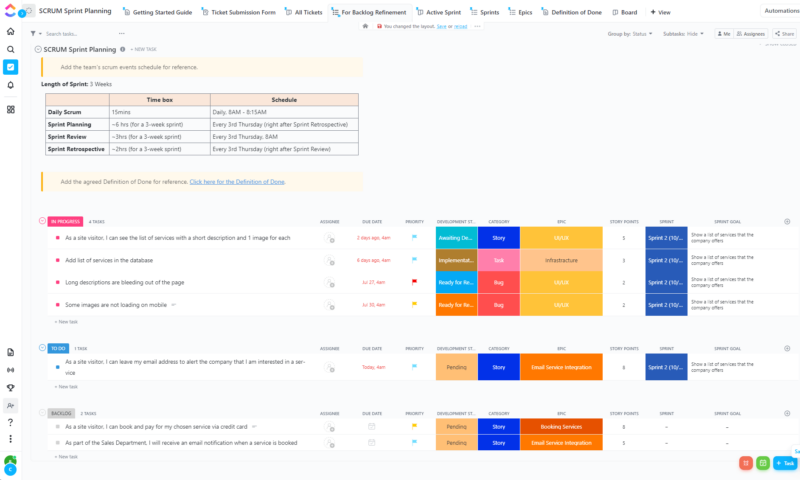
2. How do you take on negative feedback?
Why Ask This Question?
There can be times during the development process when key decision-makers are not happy with the product’s vision and end goal. It’s the product owner’s responsibility to incorporate feedback and identify how to move forward. Knowing how they handle confrontation gives you a good idea of whether they can take the product where it needs to be.
What’s a Good Answer?
- The candidate demonstrates that they don’t take negative feedback personally and see it as an opportunity to improve.
- The candidate openly listens to the end-user and aims to work together so the team can build successful products.
- They don’t project negative feedback onto the development team, instead finding ways everyone can work together to move forward.
3. How do you manage pressure?
Why Ask This Question?
It’s rare that a product owner goes through the entire process without enduring some pressure. They’ll need to make quick decisions, analyze situations, respond to issues and spot potential problems before they happen, all while keeping the end-user informed. With that, it’s important to learn how they manage pressure and determine whether they’re able to deliver high-quality work during stressful periods.
What’s a Good Answer?
- The product owner shows that they can compartmentalize larger issues in order to move past them.
- They explain why it’s important to lead by example and keep a calm demeanor to influence the rest of the scrum team.
- They share examples of coping strategies that help them manage stress.
Interview Questions: Behavioral
The right behavioral traits are very subjective and likely differ depending on the company’s culture. Below are some to look out for.
1. How do you work with someone whose personality is different from yours?
Why Ask This Question?
Not everyone on the team will be best friends, and personalities will differ. It’s important for a product owner to move past the personal and focus on the professional. Encourage the candidate to share real examples of when they have worked with someone whose personality was the polar opposite of theirs.
What’s a Good Answer?
- They demonstrate an understanding of why it’s important to put personal opinions to one side and focus on a team member’s skills rather than their personality.
- The candidate expresses that it’s a good idea to adapt to another team member’s personality if it means creating the best product possible.
- They provide examples of past personality conflicts and strategies of how they overcame them to move a project forward.
2. How do you motivate a team when problems occur?
Why Ask This Question?
A project is seldom smooth sailing. Product features constantly evolve, uncooperative stakeholders can slow things down and ongoing tests highlight problems that need to be overcome. This can deflate a team. It’s essential for a product owner to keep morale high and the team motivated.
What’s a Good Answer?
- The candidate indicates that they lead by example with a calm and positive attitude.
- They remind the development team of their strengths and use them as a catalyst to keep moving forward.
- A good product owner allows the team to air their concerns and frustrations so they can voice their feelings, clear their minds and return to focusing on the task at hand.
3. How do you manage time when you have multiple tasks?
Why Ask This Question?
People may consider good time management a soft skill rather than a behavioral one. However, when tasks mount up and deadlines approach, the right temperament is required to stay focused and get the work done within a time frame that suits the end-user. Ideally, you want to ask the candidate for an example of when their responsibilities became overwhelming because of a deadline.
What’s a Good Answer?
- The candidate provides examples of how they adapt when unexpected work takes their plan down a different path.
- Ideally, the candidate uses time demands as motivation to stick to the task at hand, thriving in the moment rather than getting too overwhelmed.
- It is a bonus if they can share their experience using the best time management tools.
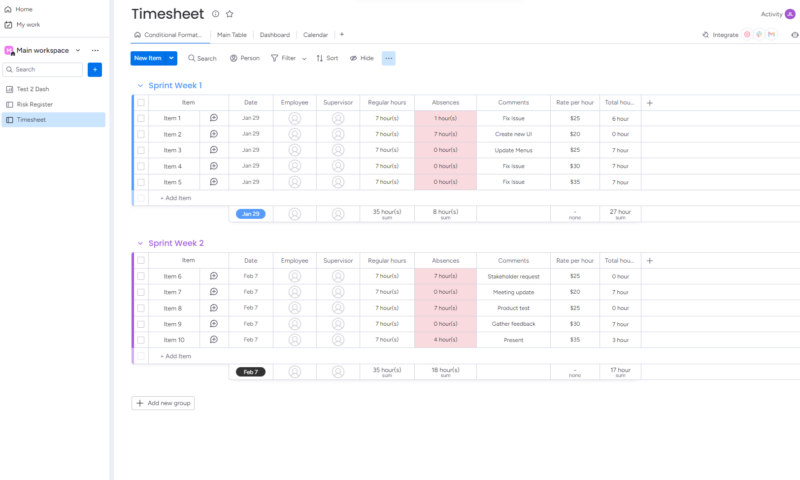
help manage time, they’re already one step ahead of the curve.
Product Owner Interview: Tips for Success
If you’re preparing for an interview, below are five tips to help you succeed.
- Get into an agile mindset: This includes revisiting everything that you have learned about agile, scrum and the role of a product owner. Employers need to see that you have the relevant knowledge.
- Prepare your best examples: Employers want evidence that you have carried out a similar role successfully. You don’t want to draw blanks when they ask about it.
- Ask questions: This isn’t just an opportunity to talk about yourself. Employers value candidates who are interested in the company and the product in development.
- Be yourself: Employers want to understand who you are so they can determine whether your personality fits with the rest of the team.
- Build a product vision: You can’t create a roadmap on the spot, but if you have ideas for the product, share them in the interview. This is a positive sign and shows the interviewer that you’re invested in getting the product off the ground.
Final Thoughts: Interview Questions for a Product Owner
After reading this guide, you should be fully prepared to interview a potential product owner. You should also have a better understanding of what employers look for in a candidate. If you’re new to all of this and looking to build a career as a product owner, take a look at our What Is Agile? article, as it includes plenty of useful information.
Did you find this guide to product owner interview questions and answers useful? Which questions do you like to ask when interviewing product owners? Is there another style of interview you would like us to prepare you for? Let us know in the comments. Thanks for reading.
FAQ
-
A product owner should show a genuine interest in the product. They should ask about the problem the product will solve and who will use the product. This helps the product owner build a user story so the development team can create and meet the end-user’s requirements.
-
A product owner is responsible for a product’s success. Their job is to liaise with the end-user, gather customer feedback, plan sprints and design a product roadmap.
{“@context”:”https:\/\/schema.org”,”@type”:”FAQPage”,”mainEntity”:[{“@type”:”Question”,”name”:”What Questions Should a Product Owner Ask? “,”acceptedAnswer”:{“@type”:”Answer”,”text”:”
A product owner should show a genuine interest in the product. They should ask about the problem the product will solve and who will use the product. This helps the product owner build a user story so the development team can create and meet the end-user\u2019s requirements.\n”}},{“@type”:”Question”,”name”:”What Is the Role of a Product Owner in Brief? “,”acceptedAnswer”:{“@type”:”Answer”,”text”:”
A product owner is responsible for a product’s success. Their job is to liaise with the end-user, gather customer feedback, plan sprints and design a product roadmap.\n”}}]}
The post 14 Product Owner Interview Questions in 2024 appeared first on Cloudwards.

